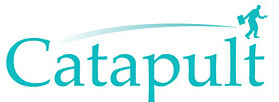Article 7 of 7-part thought leadership series: Protecting and Sustaining Your Organisation Through Ethical Decision-Making
As we conclude our 7-part thought leadership series, it’s time to synthesize our insights on ethical decision-making within organisations. Drawing from the profound wisdom of Robert S. Hartman’s framework, we reflect on the journey towards sustaining integrity and success through ethical choices.
Key Findings: A Compass for CEOs and Leaders
Throughout this series, we have explored the intricate dance between the three dimensions of value—Systemic, Extrinsic, and Intrinsic—and their critical role in guiding organisations away from ethical quandaries. Here’s what leaders should take away:
Intrinsic Value: Perhaps most importantly, organisations must recognize the inherent worth of their people, fostering a culture where everyone feels respected and valued.
Extrinsic Value: While performance metrics are vital, they must be pursued with a conscience, ensuring that success is not tainted by ethical compromise.
Systemic Value: Strong ethical policies and compliance mechanisms are not just a backdrop; they are the blueprint for corporate behaviour.
These dimensions form a holistic framework that allows leaders to navigate the murky waters of ethical dilemmas with a moral compass that points true north.
Implications for Organisational Leadership
For CEOs and organisational leaders, ethical decision-making is non-negotiable. It is the lens through which all strategic and operational decisions should be viewed. The implications are far-reaching:
Risk Mitigation: Ethical foresight is key. By understanding the interplay of Hartman’s values, leaders can anticipate and mitigate risks before they materialize.
Reputation Management: In an era where reputation can be a company’s most valuable asset, ethical integrity is critical. It attracts customers, investors, and talent, all of whom are increasingly values-driven.
Performance Enhancement: Ethical organisations perform better. They enjoy higher levels of engagement, innovation, and resilience, leading to sustainable success.
Final Thoughts: The Ethical Imperative
As we venture forward, let us not forget that ethical decision-making is the foundation upon which lasting organisational success is built. Hartman’s framework is not just a theoretical model; it is a practical tool that has been shown to drive positive change in the real world.
Adopting this framework means choosing a path that respects the dignity of all stakeholders, that values honest achievement, and that aspires to a higher standard of corporate citizenship. It’s about creating a legacy that goes beyond profits, one that contributes positively to the world.
As leaders, we hold the power to shape the ethical dimensions of our organisations. Let’s wield this power wisely, with a clear vision of the kind of world we want to build and the kind of organisation we wish to be remembered for.
The Road Ahead
Our journey through ethical decision-making doesn’t end here. It’s an ongoing process of growth, learning, and adaptation. By committing to the principles outlined in Hartman’s framework, organisations can ensure they are not just surviving but thriving—ethically, socially, and economically.
Thank you for joining us on this journey through ‘Protecting and Sustaining Your Organisation Through Ethical Decision-Making’. May it inspire you to lead with integrity, courage, and a steadfast commitment to the values that elevate us all.
As we close this series, remember that the pursuit of ethical excellence is never complete. It’s a continuous commitment to integrity that defines truly great organisations.
🚀 Embark on a journey towards ethical excellence and business success. Your organization’s future depends on it.
👉 Begin your journey to ethical excellence: Take the quiz now at [https://goodculture.scoreapp.com]
#EthicalLeadership #BusinessIntegrity #OrganisationalHealth #GoodCulture #ethics



0 Comments